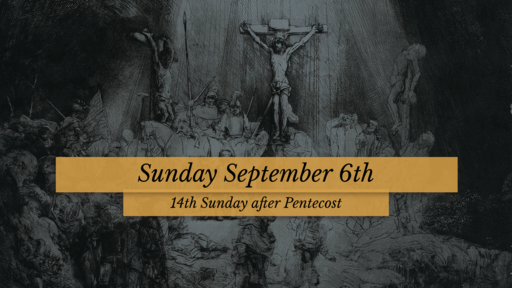Fourteenth Sunday After Pentecost

The State and the Christian
Four Parts:
VV. 1-2 The Role of the Christian
The gospel does not overthrow secular government, public order, and marriage but instead intends that a person keep all this as a true order of God and demonstrate in these walks of life Christian love and true good works according to each person’s calling. [6] Christians, therefore, are obliged to be subject to political authority and to obey its commands and laws in all that may be done without sin
VV.3-4 The role of the state
Concerning public order and secular government it is taught that all political authority, orderly government, laws, and good order in the world are created and instituted by God [2] and that Christians may without sin exercise political authority; be princes and judges; pass sentences and administer justice according to imperial and other existing laws; punish evildoers with the sword; wage just wars; serve as soldiers; buy and sell; take required oaths; possess property; be married; etc.
[3] Condemned here are the Anabaptists who teach that none of the things indicated above is Christian.
[4] Also condemned are those who teach that Christian perfection means physically leaving house and home, spouse and child, and refraining from the above-mentioned activities. In fact, the only true perfection is true fear of God and true faith in God. For the gospel teaches an internal, eternal reality88 and righteousness of the heart, not an external, temporal one.
VV. 5-7 The Relationship of Christian and State
VV. 8-10 The Positive Life
The exception to the rule
But if a command of the political authority cannot be followed without sin, one must obey God rather than any human beings